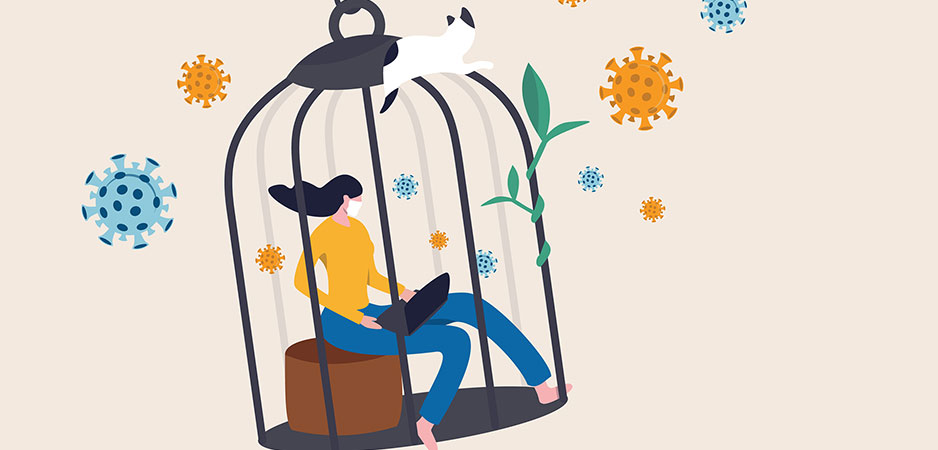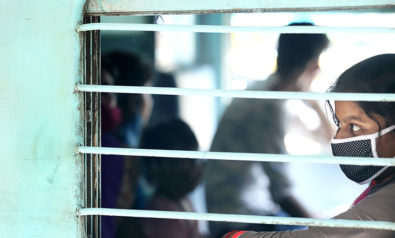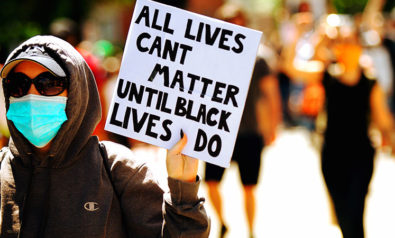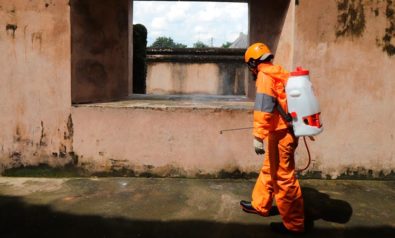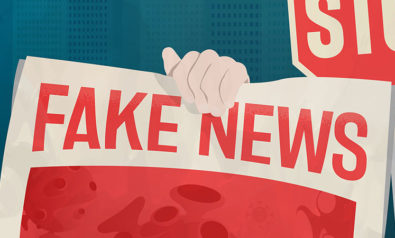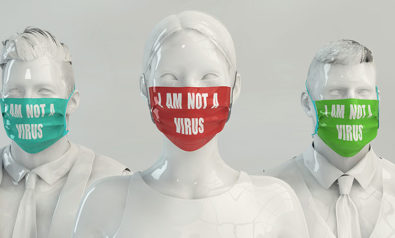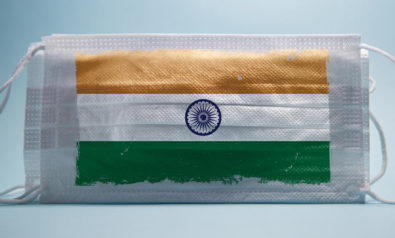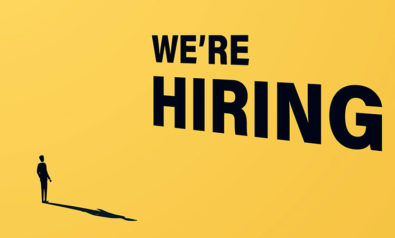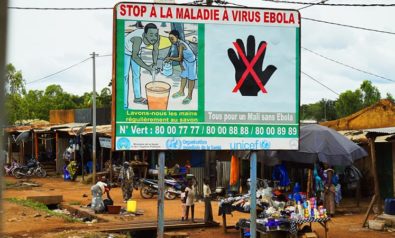It is terrible to be sick, and more terrible to be sick and alone. Ten years ago, my mother’s hospice unit was in quarantine for E. coli. In her last week of life, none of her friends were allowed to visit.
Now everyone gets to taste that isolation in what may be the most widespread and sudden change in human behavior ever. In an instant, everyone stays home, and stays apart, worldwide. This is on top of an existing (anti)-epidemic of self-isolation, accelerating over the last decades, already making people alienated and lonely, in dire need of social exposure. Now, adding insult to injury, comes enforced social isolation to combat the virus. Necessary, but sad.
At the same time, a huge portion of the economy is abruptly shutting down, rendering many people even more desperate. The American economy just slowed down by a tenth — about $200 billion a month — mostly taken from the underpaid service workers who need the money most.
What good might possibly come from this triple-threat of COVID-19, isolation and destitution? A wake-up call on many fronts, from how to be happier as humans (rather than as consumers) to designing economies to keep us happy (rather than consuming). It will be a bonus to find which technologies help our nervous systems and which hurt.
Below follow several ideas to make the best of the crisis as derived from the same mathematical principles informing my other articles in Tech Turncoat Truths.
Enjoy!
Keep your immune system strong by taking care of yourself and your housemates. Sleep in, eat well, take walks. Have family time, laugh, play games. Get to know your neighbors at two-arms’ length and appreciate how much they help our common project too. Enjoy a suddenly-cleaner outdoors and suddenly-quieter towns. Stop paying attention to fear-mongering news. If parents stay calm, small children will follow and may remember this time at home as the most fun time of their lives.
Geometric Math Informs Decisions
Right now is proof that science can trump politics. Because the exponential mathematics of epidemic spread is absolute and unavoidable, the collective response has been fast, forceful and followed by nearly everyone. Both the problem and solution are clear.
Anti-science presidents and enemy nations are now collaborating on preventing a relentless, fast-gaining enemy. Mathematical enemies must be fought mathematically. That fact is being used right now, and that fact ought to be used to restore social balance post-coronavirus and redesign future business rules around information science. Both human nervous systems and economies contain instabilities akin to the spread of pathogens, and both human and economic systems have been systematically corrupted. The same exponential mathematics used to combat COVID-19 can explain those problems too.
For example, the ideas now guiding global economies depend on an oversimplified understanding of information flow and trust because those ideas were invented before information science was discovered or trust was understood. Once economics grows to include the costs of information flow, its limited bandwidth, the crosstalk corrupting content and human nervous systems’ weaknesses, economic science will have both the mathematical heft of epidemiology and its problem-solving power.
To that end, protecting humans will require tilting legal and regulatory systems toward laws preserving human life and dignity, and away from laws preserving capital. At present, the tilt is the opposite.
Microtime Will Help
Human brains need microsecond-level interaction for proper function, which happens best in proximity. If you can get close, then walk side by side, stand back to back, link arms or talk face to face. If you need a couple of meters of social distance, then sing or talk from that range, but still nearby. I predict that people interacting neuromechanically will thrive the most during quarantine.
After proximity comes voice connection. Just a few minutes chat every few days is fine to resynch emotional circuits, the way parents call kids. Stick to small talk because it’s all about the familiar sound, not the words. Unfortunately, text carries no trust-forming microtime. Every time we trust the written word, our reservoirs of trust deplete. So don’t use text channels to argue or work through emotions.
The global shock of COVID-19 to our economies and social lives is so great that the world must change. If we pay attention, we can make the change for the better.
*[The articles in this column present a set of permanent scientific truths that interlock like jigsaw pieces. They span physics, technology, economics, media, neuroscience, bodies, brains and minds, as quantified by the mathematics of information flow through space and time. Together, they promote the neurosafe agenda: That human interactions with technology do not harm either the nervous system’s function, nor its interests, as measured by neuromechanical trust.]
The views expressed in this article are the author’s own and do not necessarily reflect Fair Observer’s editorial policy.
Support Fair Observer
We rely on your support for our independence, diversity and quality.
For more than 10 years, Fair Observer has been free, fair and independent. No billionaire owns us, no advertisers control us. We are a reader-supported nonprofit. Unlike many other publications, we keep our content free for readers regardless of where they live or whether they can afford to pay. We have no paywalls and no ads.
In the post-truth era of fake news, echo chambers and filter bubbles, we publish a plurality of perspectives from around the world. Anyone can publish with us, but everyone goes through a rigorous editorial process. So, you get fact-checked, well-reasoned content instead of noise.
We publish 2,500+ voices from 90+ countries. We also conduct education and training programs
on subjects ranging from digital media and journalism to writing and critical thinking. This
doesn’t come cheap. Servers, editors, trainers and web developers cost
money.
Please consider supporting us on a regular basis as a recurring donor or a
sustaining member.
Will you support FO’s journalism?
We rely on your support for our independence, diversity and quality.


